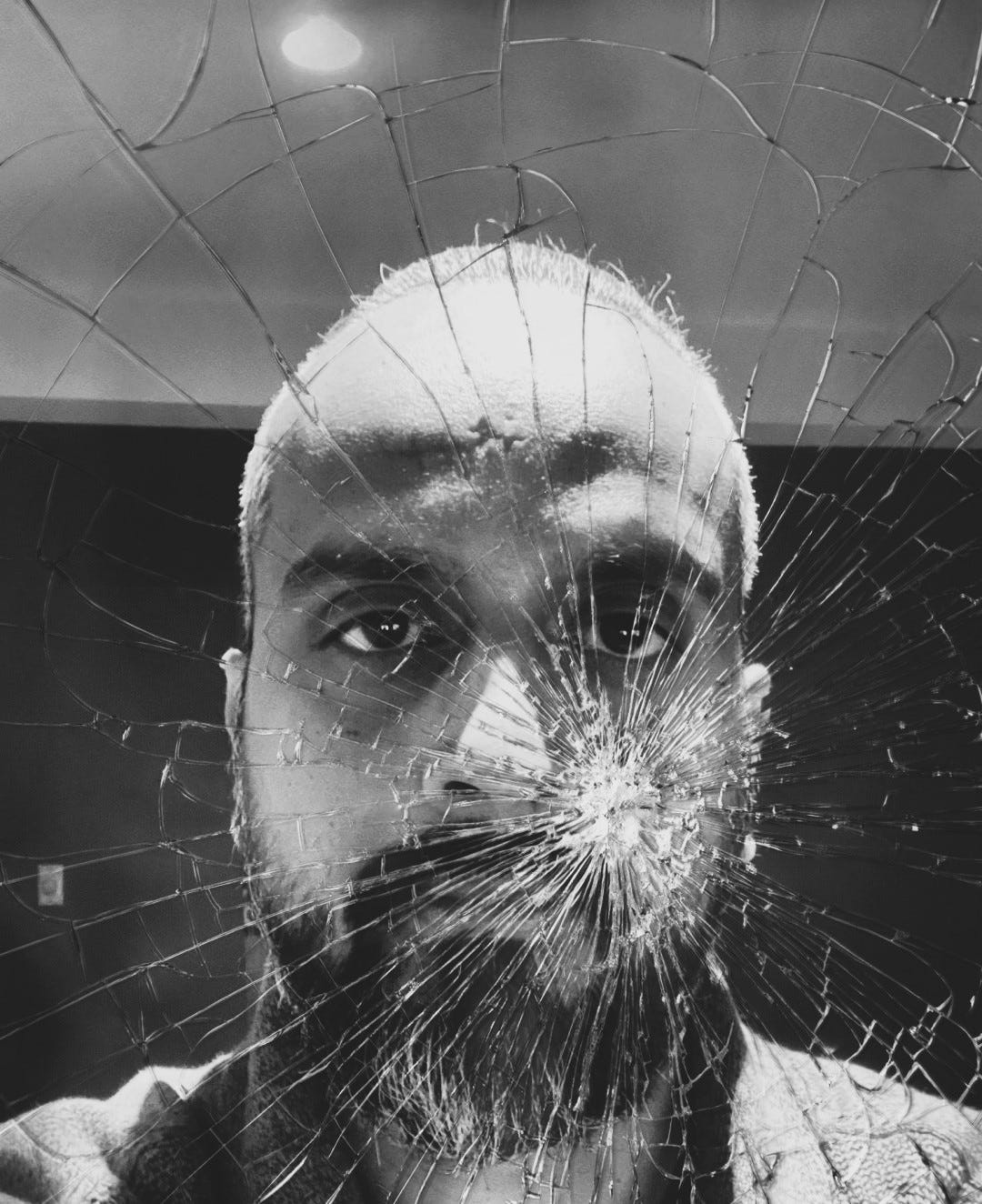The Language of Broken Mirrors
Why your true face is so obvious you cannot see it and how I use mental mosaics to inspire others to play with their distorted reflections
“All of what you wrote is coherent, logical and makes sense to the point of being obvious. Yet it is novel, at least to me. Very curious about how you think and write. Kindly indulge me.
Is this layering of contexts and their relationship plainly obvious to you? How do you "see" or perceive it? Is it visual or visceral?
How do you know it's not self-evident to others, that it needs to be laid out in language to be made known? ("Is this really an insight or is this something that's common knowledge but just occurred to me?"- me at different points of my life)
Do you have to think hard for the examples or are they easy for you?”
.
***
.
Truth is obvious. It is the most obvious thing there is.
What obscures our perception is the myriad ways in which we have learned to distort it. There is a complex framework of skews, biases and prejudices that we apply to what we see, through our conditioned sociocultural lenses, that fragments it into a million different pieces and leaves us struggling to fit them together.
It is like staring into a cracked mirror and attempting to decipher what your true face looks like. You can spend a lifetime trying to piece together the cracks, but your true face isn’t in the mirror. It is what is looking into the mirror. And it is unaffected by the thousands of shatter lines that have fragmented its reflection.
This is obvious. And yet, it is too obvious.
Our minds and our perceptions are outwardly oriented. No matter how many times we may be reassured (and may even reassure ourselves) that what we see in the mirror is not what we seek, we continue to search for the truth of ourselves in the reflections we see rather that in the unshakeable knowledge that we are.
The mind is that mirror. And we are perpetually seeking ourselves in it, around it, through it, and apart from it. Yet, a fractured mirror is what it is. Creating a thousand reflections of ourselves - a thousand versions all competing to prove that they are the “one true reflection”.
You cannot turn off the mind. Just as you cannot prevent a mirror from reflecting. And you cannot repair the mind either. Broken glass cannot be restored. One can only learn ways of not shattering it further. One can seal the cracks in a way that they hold together with some semblance of coherence.
All of human life is lived through our reflections. We perceive others in our broken mirrors. We perceive the world in our broken mirrors. We perceive our relationships in our broken mirrors.
This is how we have all learned to relate to one another. Through our broken reflections.
Keep reading with a 7-day free trial
Subscribe to Dark Knight of the Soul to keep reading this post and get 7 days of free access to the full post archives.


